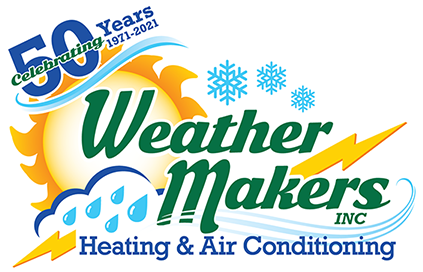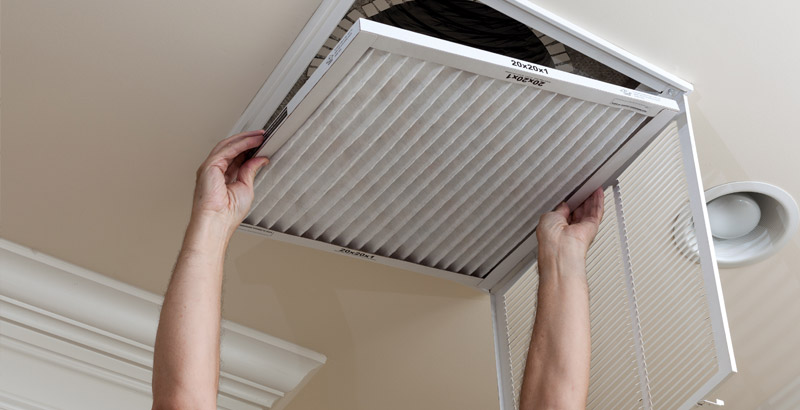Everyone wants to stay comfortable at home, but few realize that climate control is as much about the quality of air in the house as the temperature. Most Americans spend the majority of their time indoors and the majority of that indoor time at home; thus, the quality of the air you breathe has a huge impact on your health and quality of life. Investing in improved indoor air quality will make a big difference for your home and everyone in it.
Indoor Air Quality Products: How They Work
Air quality and ventilation have been top priorities for the HVAC industry for four or five decades now, and in that time, we’ve seen the rise of many great IAQ products. Here are a few of the most popular systems on the market today.
- Air Filters and Air Purifiers: These systems are basically your frontal assault on indoor air quality issues. They use a variety of methods to remove contaminants from the air directly, which great for people with respiratory allergies.
- Humidifiers: Maintaining a good humidity level is a huge part of indoor air quality management. In addition to reducing asthma and allergy symptoms, humidifiers help your wooden furniture last longer.
- Energy Recovery Ventilators: Replacing indoor air fresh outdoor air is a clear way to improve air quality, but when your air conditioner is running, you can’t just open a door or window. Ventilators work with your air conditioner to swap stale indoor air with fresh outdoor air and save energy in the process.
- UV Lamps: These systems use ultraviolet light to kill bacteria and other microorganisms in the air. They’re a great complement to your other forced-air systems such as air conditioners.
With such a diverse array of systems available, it’s best to work with an air quality expert to find the best solutions for your home.
Duct Cleaning and Sealing
If your home uses central air conditioning or a furnace, the duct system plays a vital role by carrying hot or cold air throughout the building. Thus, if there’s dust or debris in the ducts, there will soon be more pollution in the air throughout the home. The way to deal with that issue is to have your ducts professionally cleaned.
During the cleaning process itself, an HVAC technician will disassemble your entire duct system, which may mean cutting some additional access holes. We’ll use special brushes to dislodge dirt and dust without harming the delicate ducts themselves, then use a high-powered vacuum cleaner to pull it all in to a bag and dispose of it. If necessary, we’ll also use chemical biocides to kill off any bacteria that might be growing in the duct system, keeping it out of the air you breathe.
Duct cleaning will bring a noticeably cleaner smell to the air in your home and will likely reduce symptoms for asthma and allergy sufferers. Clean ducts also help all of your forced-air systems run more efficiently, and you’ll see the difference on your utility bills. Moreover, once the ducts have been cleaned, they tend to stay clean for a long while. We generally recommend duct cleaning every three to 10 years, depending on pets, smoking and general home cleanliness.
Another way to help your duct system help you breathe easily is to have your ducts professionally sealed. Sealing stops chemicals from leaking into the duct system, which will then distribute it throughout the house. Eliminating leaks in the duct system will also help your forced-air systems run more efficiently; after all, the average central air conditioner loses 20 to 30 percent of its cooling power to leakage.
Benefits of Improved Indoor Air Quality
The most obvious health benefits of improved air quality are for people with asthma, allergies and other respiratory ailments; eliminate the contaminants that trigger their conditions, and you’ve eliminated a lot of misery. Some of the statistics on improving IAQ are simply staggering: One study found that retrofitted homes saw hospital admissions for respiratory issues drop by over 40 percent and days off work drop by 39 percent. Numerous studies have shown that productivity, too, is correlated with indoor air quality; when everyone is breathing easily, a lot of things get done.
Improved indoor air quality also helps to suppress unpleasant odors throughout the home. If there are spaces in your house that have become unusable because of those odors, taking steps to improve IAQ can help recover those spaces, increasing your home’s resale value. There’s no way to quantify the day-to-day benefits of living more comfortably in a home with clean indoor air, but those benefits, too, are huge. In short, the time to start thinking about the quality of air in your home is now.

